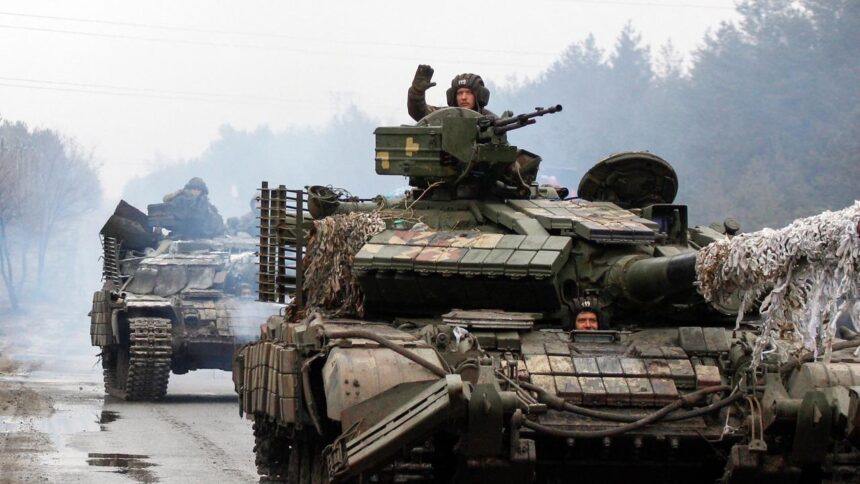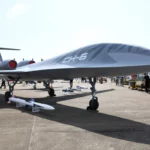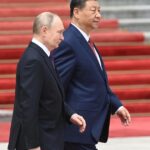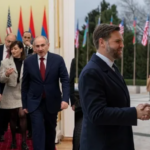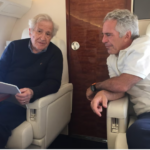The article delves into the ongoing conflict between Ukraine and Russia, highlighting the interplay between military operations, determination, and economic strength on both sides. It underscores the significance of Western support for Ukraine and the potential repercussions of a decrease in this support, particularly if Donald Trump were to win the 2024 U.S. presidential election.
The author also considers the possibility that Putin’s regime could face internal pressures due to economic and societal challenges. However, the article emphasizes that the outcome of the war ultimately depends on developments on the battlefield and external factors.
Read more below.
The Ukraine War: Where to from Here?
The war between Russia and Ukraine hinges not just on military engagements but also on the willpower and economic capacities of both nations. Broader geopolitical challenges and internal pressures within Russia will likely impact the war’s duration and outcome, with much also depending on Western support for Ukraine.
Wars end with a mix of coercion and compromise, on and by both sides. The coercion might be great enough to compel one side to surrender unconditionally. Or both might be evenly balanced so neither can realistically coerce the other—a mutually hurting stalemate—and both need to compromise broadly evenly.
How much coercion and compromise depends on relative military advantage: how the war’s going, now and in the future. But it’s also affected by international pressure—how do international actors influence the war?—and domestic politics, including popular support and political stability.
So what’s happening in the Russo-Ukrainian War?
Both sides are having a difficult year. The Russians have the initiative in the Donbas and the Ukrainians have attacked near Kursk in Russia. But advances are costly and relatively minor.
It may look like a stalemate in which both sides could negotiate a compromise solution: except, of course, stalemates can be broken. In World War I, tactics, technology, and numbers eventually allowed the Allies to break German lines and force their surrender. And this is what the Russians hope they can do in Ukraine, using human and industrial strength to erode Ukrainian resistance.
But there’re three contests going on in the war; only one on the battlefield. The others are the contest of wills—the determination to continue to fight—and the contest for the economy—the means to continue to fight. All are interrelated.
First: the contest of wills. Many in the West have been surprised by what Vladimir Putin is prepared to do to win this war. He’s a strong-willed leader who personifies the Russian invasion and he’ll accept any level of casualties or damage to the Russian economy rather than climb down.
If the West has been surprised by the strength of Putin’s will, he’s been equally surprised by the strength of Ukrainian will; perhaps beguiled by his own narrative that, at heart, they want to be Russian.
Even now, in a difficult phase of the war, Ukrainians largely believe in eventual victory. Next year, after perhaps another hundred thousand casualties with few gains, Ukrainian willpower might falter. But not yet.
Ukraine still needs the support of the West. Western willpower is attacked daily through Kremlin messaging that promotes the impossibility of Ukrainian victory and negotiated peace as inevitable. Under this narrative, giving weapons to Ukraine only prolongs war and we should force Ukraine to cede land and people for peace.
Putin says Ukraine wouldn’t last a month without American support. This is his theory of victory: Donald Trump wins in November; US withdraws support; Ukraine loses by mid-2025.
Ukraine, on the other hand, strives to maintain Western support. To do this they must undermine the narrative that victory is impossible; success on the battlefield promotes Western belief that winning is possible. The Kursk offensive needs to be understood in this light.
So far, we haven’t examined the will of the Russian people; only, on the Russian side, that of Putin. In an autocracy, like Russia, it’s easy to assume people don’t matter much. It certainly looks that way given how their army sacrifices huge numbers on the battlefield for relatively minor gains.
But that’s not how it is behind the façade. Maintaining public support is important. And, seemingly, it’s working. Although polling in Russia can’t really be trusted, it appears most support the Kremlin or give it the benefit of the doubt. However, evidence suggests this support is conditional. During the late 2022 mobilisation, for instance, public support dropped unlike any other time in this war.
Russia has overcome its manpower problem largely by voluntary recruitment, with steadily increasing army salaries, gaining around a thousand men each day, and keeping slightly ahead of the casualty level in Ukraine. This doesn’t mean that the Russian population is immune to casualties; withdrawal from Afghanistan was pressured by wives and mothers of servicemen. But the regime today is different. Putin is personally invested in Ukraine; Gorbachev not at all in Afghanistan.
So although war weariness may yet come to Russia, it’s unlikely, by itself, to worry Putin. But it may contribute to a circumstance of factors that might worry him.
One of these is the economy. Again, on the face of it, the Russian economy looks strong. Kremlin supporters point to growth in Russian GDP, stabilisation of the Ruble, and that Russia has found alternative markets for oil.
But there are disadvantages to a wartime economy. Much industrial output now explodes in Ukraine rather than driving growth. The Ruble is stable only due to high interest rates which fuel inflation, exacerbated by increased salaries in an economy with a critical shortage of workers. All this impacts ordinary Russians, since many domestic goods are imported.
Putin’s economic trilemma is to fund the war, sustain living standards, and guarantee macroeconomic stability. He is managing the first: Russian industry has upped military production and Ukraine cannot expect Russia ever to run out of missiles or shells.
The Kremlin’s economic plans seem to rely on victory next year, to mend long-term damage before it’s irreversible. If all Putin’s assumptions about Ukrainian collapse come good, that may be possible. But it seems unlikely.
Many men being killed or maimed, lowering standards of living, and perhaps resentment of an increasingly repressive regime, may result in societal discontent.
Is it possible Putin’s regime may collapse because of this?
It appears unlikely. Outwardly, Putin appears more secure now than ever. But who knows? The fall of dictators is rarely predicted. Historically, autocracies have collapsed because of elite fracture rather than popular uprising, and who can tell when such fracture might occur, despite regime brutality? It might result from a cocktail of economic stress and societal unease, both caused by war.
So, it comes back to the battlefield. If Russia is winning, internal pressure on Putin is eased. And if Ukraine cannot show success, external pressure on Putin is eased too.
This means that the war depends on a battle between Western willpower and Putin’s hold on power. Right now, it looks as though Putin’s staying power might be stronger.
But, if the West continues to support Ukraine over the next two to four years, Russia cannot win. Pressure then returns to Putin, economically and socially, which might result in regime collapse.
If the West doesn’t continue to support Ukraine in a major way, pressure on Putin is much reduced; he could probably attack Ukraine indefinitely until Ukrainian willpower eventually collapses. So, it’s unlikely the war will end soon.
When it does end, though, it’ll probably largely be the result of external pressures—perhaps an isolationist presidency in DC—and internal politics, such as societal discord and economic stress in Russia. But both are heavily influenced by what happens on the battlefield. It all comes down to the fighting.
By: Richard Iron – CMG OBE is president of AIIA Victoria. He was educated at the University of Cambridge in the UK, and served for 37 years in the British Army, largely spent on operations in Northern Ireland, the Sultanate of Oman, the Falkland Islands, the Balkans, and Iraq.

